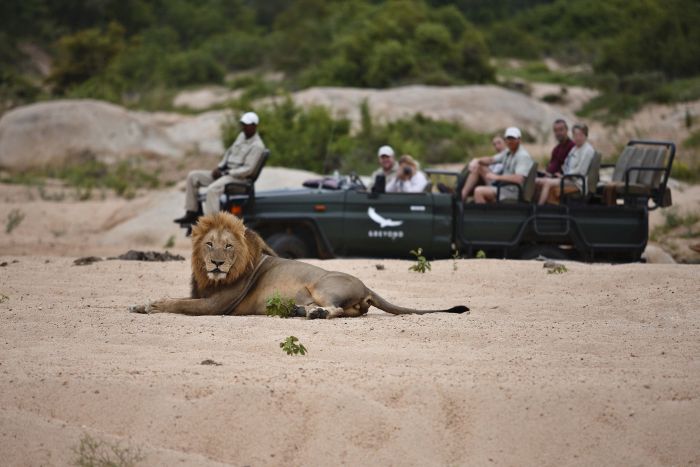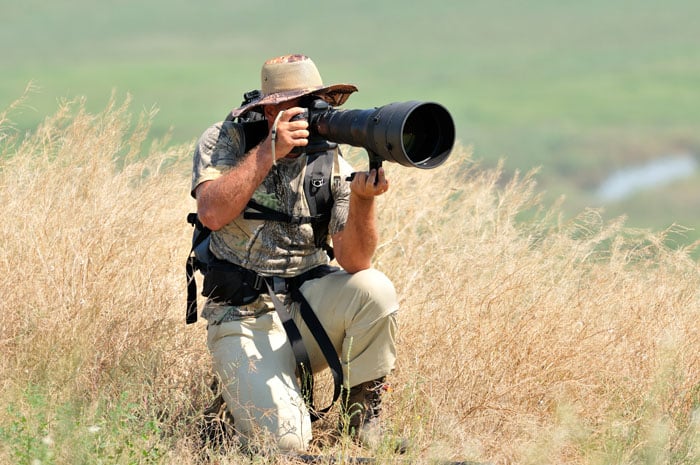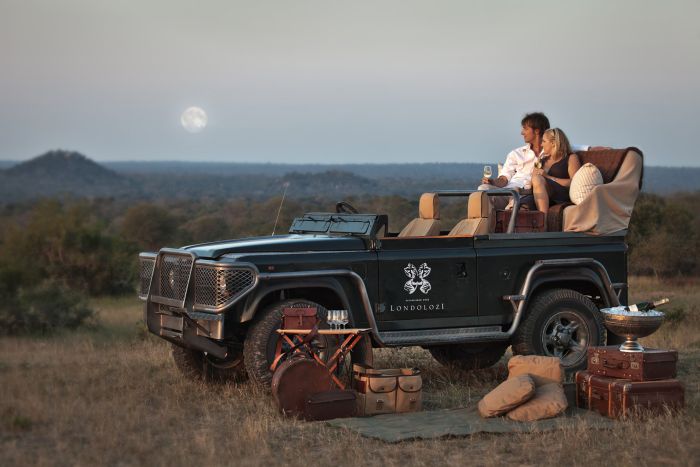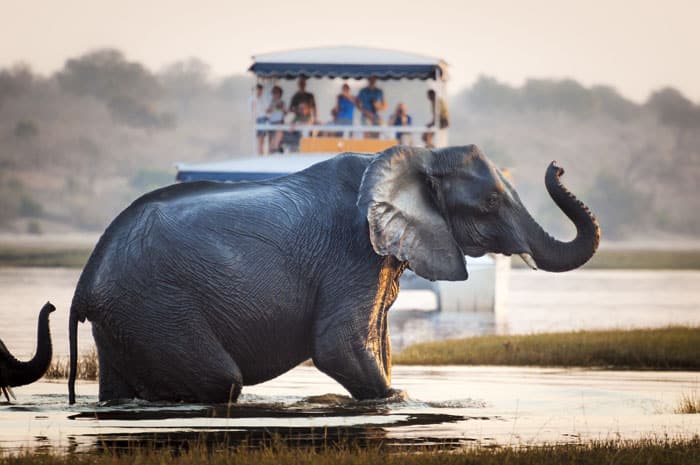Safari through the Seasons
We are often asked when is the best time for a safari? Typically in Southern Africa, the simple answer is the dry winter and spring months of June through to October.
But WHY do we say this? And what are the implications if you simply cannot come on safari at this time? What can you expect when travelling at a different time? We’ll explore this in detail below:
Why we recommend the Dry Season for your safari
Animals need water and food. In the dry winter months the animals are forced to come to waterholes and the rivers to drink, increasingly as the season continues. Because of their need to drink frequently they tend to stick around to feed in these areas as well.
Most of Africa’s national parks are vast and not fenced. So animals, especially elephants, can and do trek for hundreds of kilometers in search of water and fresh nutritious grasses.
Thus, once the rains come, they will generally leave the (now) over-grazed areas around the waterholes in search of fresh grasses. They are not fenced in. So they’ll travel in and out of the official boundaries of the national parks at will.
Note: Much of what I say below also holds for East Africa. But because of their two rainy seasons and the pattern of animal migration, you might want to look at our page about the Serengeti.
African Safari Experts
Dry Winter (Late May to August)
Animals need water and food. In the dry winter months of May/June onwards, the animals need to come to waterholes, either natural or pumped, and the rivers to drink. In terms of your safari, this means that the animals are predictably seen at certain places and so your chances of finding them increase, almost exponentially, as the dry season progresses.
Plus, as the winter progresses, the bush dies down and so it’s easier to spot the game. The lower grasses also make walking safaris more viable as it lowers the danger factor of stumbling upon a dangerous animal unexpectedly.
Finally, the daytime temperatures are very pleasant. So you can comfortably stay in the sun for longer. You don’t need a roof canopy on your vehicle which can restrict your view. This is especially important if you’re a keen photographer or birder. The game drives can be longer, even all day in some reserves, with your guide taking a picnic lunch to enjoy in the bush.
All these factors make it the best time for a safari.
The dry season is when the Okavango Delta is in full flood, this is the best time to see Victoria Falls and the important rivers of the Zambezi and Chobe are a magnet for animals.
Downside
- As the winter progresses, it gets dusty and the landscape becomes much less attractive.
- Secondly, the nights will be cool – even in Africa – and can be downright cold in South Africa.
- Finally, because it is the best time for game-viewing, this is the peak season for most safari camps with much higher prices, especially in Botswana and Zambia. Zimbabwe is less affected.
- South African lodges tend to have annual prices as their seasonality is not so marked – see later for why…
Recommendation – this is a perfect time for a safari!
Spring (September to October)
During the months of September and October, all the above advantages for the dry winter game-viewing are amplified – the animals get even more desperate for water as most of the streams and pans start to dry up as the temperatures rise.
Animal concentrations increase and so this is also an excellent time to be on safari. BUT….
Downside
- The landscape does get even drier and dusty. This may not be so obvious close to the big rivers of the Luangwa, Chobe and Zambezi, or in the seasonal waters of the Okavango Delta. But it will be very noticeable in the Savuti, the Moremi, the Kruger and many other areas.
- Temperatures rise relentlessly. There is a reason why October is colloquially called ‘Suicide’ month in the safari industry, especially in Zambia. Physically, your safari becomes less pleasant – though the game-viewing does make up for this.
- Walking safaris are usually shorter and end by 8am as it’s simply too hot out to walk. Generally the set departure mobile walking safaris come to an end by the beginning of October at the latest.
Recommendation – this is still one of the best times for a safari, as long as you can cope with the heat in October!
Family Safaris
Early Summer (November to December)
This is the time you have to be careful of. November is a tricky month. The first summer rains usually come sometime in early November – though it can be any time from the end of October to late November.
This brings blessed release for the wildlife which is wonderful. But – make no mistake – it has clear implications for your safari!
The animals no longer have to come to the waterholes and rivers to drink. In fact they now want to leave those areas. Because they have eaten most of what’s available there. The grass is gone!
Immediately after the rains is generally not the best time for a safari. The open plains now have fresh new grass and lots of surface water, and so the wildlife heads off into the grasslands – sometimes for hundreds of kilometres. (Remember no fences!)
This effect is less noticeable in the private game reserves of South Africa which are fenced with a good road network.
Downside
- This means that the game-viewing changes (within 2 weeks) from being excellent to being on the poor side.
Upside
- However, it’s not all doom and gloom. If you come with appropriate expectations – and we cannot stress that enough – then there is still lots going on.
- Safari prices reflect this with a change from peak season prices to low season prices usually at the start of November. These are often much lower so you get what you pay for!
- If you come at the start of November you may even be lucky and arrive before the rains.
- Immediately after the summer rains come, the animals start having babies so this is a time when you will start to see lots of young animals. The bush bursts into colour and of course the summer months are much better for birding with migratory birds arriving to boost the resident species.
BUT please don’t expect to see 100 elephants drinking from the river!
Recommendation
If you are coming to Africa mainly for a safari, consider travelling at a different time – unless you are a keen birder. If you are coming for both general touring and a safari, then consider South Africa. The fenced national parks of the Kruger and Madikwe and the private game reserves Sabi Sands, Timbavati and the Eastern Cape are not as noticeably affected as the unfenced reserves of Botswana, Zambia and Zimbabwe.
Summer to Autumn (January to early May)
Again much of what I said for early summer still applies. BUT the effect of the rains gradually decreases as the summer continues. The rains usually takes the form of a heavy downpour once a day. The game-viewing will not be as prolific as in the dry winter months, and will be harder to spot because of the lush bush. But as the summer continues, the game starts gradually drifting back to the rivers and waterholes, as the vegetation gets renewed.
This is called the ‘Emerald Season’ or more prosaically, the Green Season. It’s a beautiful time of the year – green and lush. All the migratory birds are in full breeding plumage, and it’s a great time for butterflies, flowers, and colourful insects.
The skies are exploding with colour and are very photogenic especially at dawn and sunset. So keen photographers often love the summer season. The afternoon rains bring slightly cooler weather – you might even need a sweater just after the rains – though days are hot and sunny.
The rains usually stop by mid-March and so late May, April and May are also a great time to visit as the bush is starting to dry out.
It is also a good time if you want to combine a South African safari with other interests such as Cape Town, the Winelands, or the Garden Route.
Downside
- Mosquitoes could be a problem for some people and it is hot and humid (though it is much cooler during and after the rains).
Recommendation
Try to come from mid March to April onwards as there is little or no rain, with game sightings on the increase. It’s a quiet time of year so you have the bush – and the sightings – to yourselves.
HOT TIP: The winter or transitional rainfall of the Eastern and Western Cape of South Africa actually makes the summer season a good time to visit. Check out our Eastern Cape Game Reserve pages.
Experience the beauty of Africa
Sometimes you will want to come outside of peak time. If so, check out our Green Season Safari suggestions for the best places for a safari during those months.
Next Up: When to Go Where
Related Blog Posts












